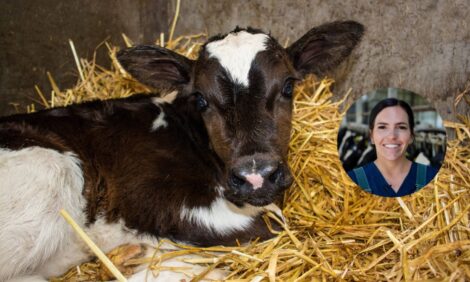



Poor African farmers do better than wealthier counterparts if they farm a greater variety of foods
Limited access to land, workers, or farm chemicals can be offset by diversification, study showsPoor farmers can achieve similar or higher incomes than farmers with greater access to resources if they farm a wider variety of crops and livestock, according to a study of more than 1,000 African farmers.
The same is also true for their food security, and the authors say it indicates a strong potential for diversification as a means to improve livelihoods amongst the continent’s smallholders.
Dr Chloe MacLaren, who led the joint Rothamsted – International Institute of Tropical Agriculture study, said: “These findings question the widespread assumption that low-resourced smallholder farming systems are inherently inefficient and that ‘Green Revolution’ technologies, such as crop breeding and agrochemical inputs, are necessarily the best route to improving agricultural production and rural livelihoods.”
Farming systems intensified via increasing crop and livestock richness, in combination with diverse home gardens and agroforestry, could, she said, offer substantial improvements to food security and nutrition.
The study found that, in general, farms with access to greater resources - in terms of land, inputs, and incomes - did better than those with access to few resources. However, farms raising the greatest variety of plants and animals could achieve similar, or sometimes greater levels of food security, dietary diversity, and incomes as better resourced but less diverse farms.
It remains to be proven whether greater farm diversity directly leads to greater incomes and food security, or whether some other underlying factor leads to both more diverse farms and to better outcomes.
However, says Dr MacLaren, the study was careful to separate the effects of wealth from the effects of diversity on farm outcomes, and also found no evidence for geographical associations that would indicate an effect of variables such as rainfall or elevation.
Dr MacLaren said: “Food security and livelihoods among smallholder farmers in sub-Saharan Africa are often constrained by not being able to afford workers or livestock, and it can be difficult to break through barriers such as low land availability and the unaffordability of agricultural chemicals. We wondered whether such farmers could gain a better return on their limited resources by optimizing the composition and/or diversity of crop and livestock species they raise. Our results are a strong sign that this approach is worthy of further investigation.”
Surveying 1,133 households in Kenya and Nigeria, the researchers looked at the total resources available to a household; which crops, livestock, fruit or vegetables were raised; and the proportion of each type of produce.
Maize is a staple crop in the areas studied, which also have similar population and livestock densities.
In each village one each of a small, medium and large farm were surveyed, with questions related to agricultural production, as well as the diet and wealth of each household.
She added the reason why diversified farms fared better wasn’t yet clear, but it could be because a greater variety of farmed products increases productivity through weed, pest and disease suppression. There were some exceptions to this trend that requires further investigation - increasing species richness was not beneficial for low-resourced, livestock-focused farmers in western Kenya, for instance. And in northern Nigeria, where farmers with more diverse smallholdings purchased a lower variety of foods, which lead to less diverse diets.


